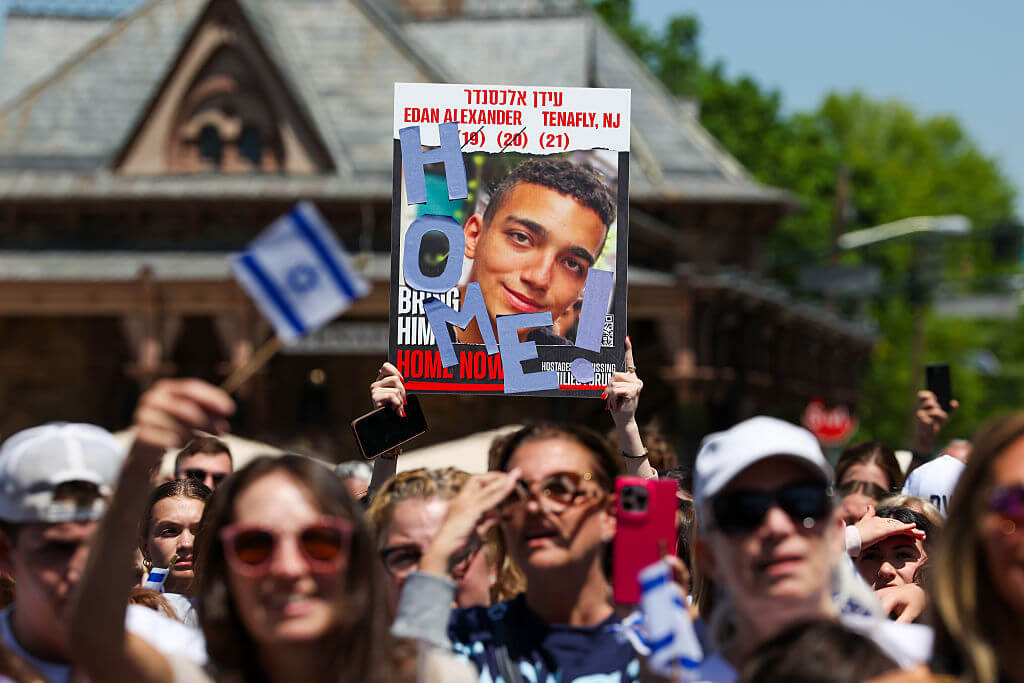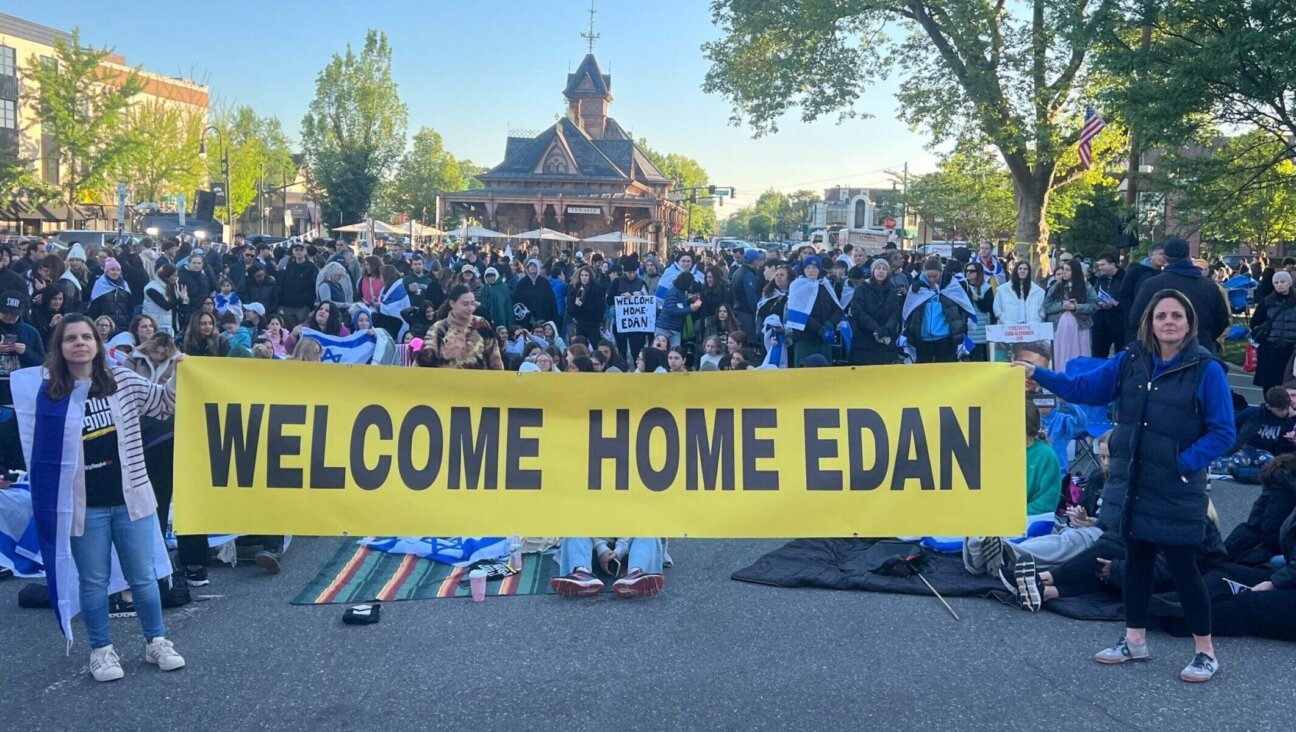U.S. Official: Building E. Jerusalem Homes Is a Blow to Peace Process
Prime Minister Benjamin Netanyahu’s plan to construct an additional 700 apartments in East Jerusalem was another blow to already stalled peace negotiations between Israel and the Palestinians, a U.S. official said on Monday.
“We feel that unilateral actions make it harder for people to get back together at the table, and that’s what our goals are,” said the official, speaking on condition of anonymity pending a formal reaction from Washington,” said the official.
“We also have mentioned in the past … that we consider all the Israeli settlements to be beyond the pale of what we wish to see going on, and are not helpful, again, to getting the two sides back to the table,” the official added.
Under the new blueprint, the Housing Ministry has invited contractors to bid on the construction of 198 housing units in Pisgat Zeev, 377 homes in Neve Ya’akov and 117 dwellings in Har Homa.
Palestinians consider Jewish neighborhoods in East Jerusalem to be settlements and say such construction impedes peacemaking.
Israel claims all of the city its capital and does not consider those neighborhoods to be settlements. Israel captured East Jerusalem, home to sensitive Jewish, Christian and Muslim holy sites, in the 1967 Six-Day War.
Netanyahu did not include East Jerusalem in the temporary construction freeze he declared weeks ago, saying the slowdown applies only to the West Bank.
“We make a distinction between the West Bank and Jerusalem. Jerusalem is our capital and remains such,” Regev said on Monday.
A spokesman for Palestinian President Mahmoud Abbas condemned the plan, accusing Israel of exploiting what he called U.S. and international inability to halt settlement building.
“The Israeli government proves every day that it is not ready for peace,” Abbas’s spokesman, Nabil Abu Rdainah said.
“We condemn this Israeli policy of continuing settlement activities, and we hope this will be an eye opener for the U.S. administration and other members of the international community,” added Palestinian official Saeb Erekat.
Meanwhile, the state is considering appropriating private Palestinian land in the West Bank, the State Prosecutor’s Office informed the High Court of Justice on Sunday.
Such a move would contravene Netanyahu’s commitment not to seize land for settlement expansion.
The prosecution’s statement to the High Court on Monday came in response to a petition by human rights group Yesh Din against the construction of a sewage treatment facility that would serve the West Bank settlement of Ofra.
Construction of the facility began in 2007, on private Palestinian land from the nearby village of Ein Yabrud, in contravention of the government’s approved master plan for the area.
“The fact that today the state is trying to legitimize the land theft … by seizing land retroactively, for the sake of a settlement that was not long ago classified as ‘the largest illegal outpost in the West Bank,’ is nothing short of an outrage,” said Shlomo Zacharia, one of the lawyers representing Yesh Din. “No less grave is the fact that this conduct, which contravenes the explicit policy of the government and the prime minister, aims to cover up the failures and unwillingness of the army and the state in defending Palestinian property.”
The state said the treatment facility was built illegally, without construction permits, and that demolition orders have been issued for its destruction. However, based on the state’s response to the petition, it does not appear to be planning to enforce the law or return the land to its rightful owners. The state did say that it is examining various alternatives to dealing with the issue.
Flying in the face of commitments
The state’s position on the treatment facility appears to fly in the face of commitments Israel has made.
“Land will not be appropriated for the expansion of existing settlements,” Netanyahu said in a June speech at Bar-Ilan University.
President Shimon Peres made a similar statement at a press conference in Cairo several weeks ago, after meeting with Egyptian President Hosni Mubarak.
Eitan Broshi, Barak’s adviser on settlement affairs, told the High Court that Ofra was the largest illegal outpost in the territorie and said most of it was built illegally on private land belonging to the residents of nearby villages. He said construction permits were not issued and that no jurisdictional borders had been defined for Ofra.
Yesh Din asked the High Court in May to order a halt to all work related to the construction of the sewage treatment plant and to suspend funding for it. It also asked the court to order the Civil Administration and Shai District police, which are responsible for the West Bank, to enforce the demolition orders and destroy the facility. The petition was filed by Zacharia, Michael Sfard and Avisar Lev.
The sewage treatment facility takes up 37 dunams, of which 33 are underground. It costs an estimated NIS 7.8 million, which is funded by the government, according to official reports. Plans for building the plant were also carried out by government authorities.
In the early 1980s a different section of Ofra was appropriated for the construction of a sewage plant, but after Ofra’s southern neighborhood was built next to that land several years later, it was decided to move the plant to a different location. That land, too, like the site of most of the homes there, is on private Palestinian land.
The Forward is free to read, but it isn’t free to produce

I hope you appreciated this article. Before you go, I’d like to ask you to please support the Forward.
Now more than ever, American Jews need independent news they can trust, with reporting driven by truth, not ideology. We serve you, not any ideological agenda.
At a time when other newsrooms are closing or cutting back, the Forward has removed its paywall and invested additional resources to report on the ground from Israel and around the U.S. on the impact of the war, rising antisemitism and polarized discourse.
This is a great time to support independent Jewish journalism you rely on. Make a gift today!
— Rachel Fishman Feddersen, Publisher and CEO
Support our mission to tell the Jewish story fully and fairly.
Most Popular
- 1

Fast Forward Ye debuts ‘Heil Hitler’ music video that includes a sample of a Hitler speech
- 2

Opinion It looks like Israel totally underestimated Trump
- 3

Culture Is Pope Leo Jewish? Ask his distant cousins — like me
- 4

Fast Forward Student suspended for ‘F— the Jews’ video defends himself on antisemitic podcast
In Case You Missed It
-

News In Edan Alexander’s hometown in New Jersey, months of fear and anguish give way to joy and relief
-

Fast Forward What’s next for suspended student who posted ‘F— the Jews’ video? An alt-right media tour
-

Opinion Despite Netanyahu, Edan Alexander is finally free
-

Opinion A judge just released another pro-Palestinian activist. Here’s why that’s good for the Jews
-
Shop the Forward Store
100% of profits support our journalism
Republish This Story
Please read before republishing
We’re happy to make this story available to republish for free, unless it originated with JTA, Haaretz or another publication (as indicated on the article) and as long as you follow our guidelines.
You must comply with the following:
- Credit the Forward
- Retain our pixel
- Preserve our canonical link in Google search
- Add a noindex tag in Google search
See our full guidelines for more information, and this guide for detail about canonical URLs.
To republish, copy the HTML by clicking on the yellow button to the right; it includes our tracking pixel, all paragraph styles and hyperlinks, the author byline and credit to the Forward. It does not include images; to avoid copyright violations, you must add them manually, following our guidelines. Please email us at [email protected], subject line “republish,” with any questions or to let us know what stories you’re picking up.














